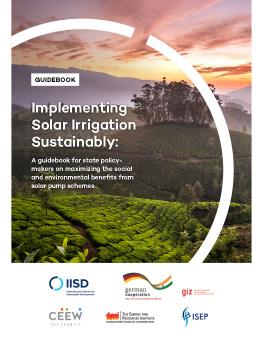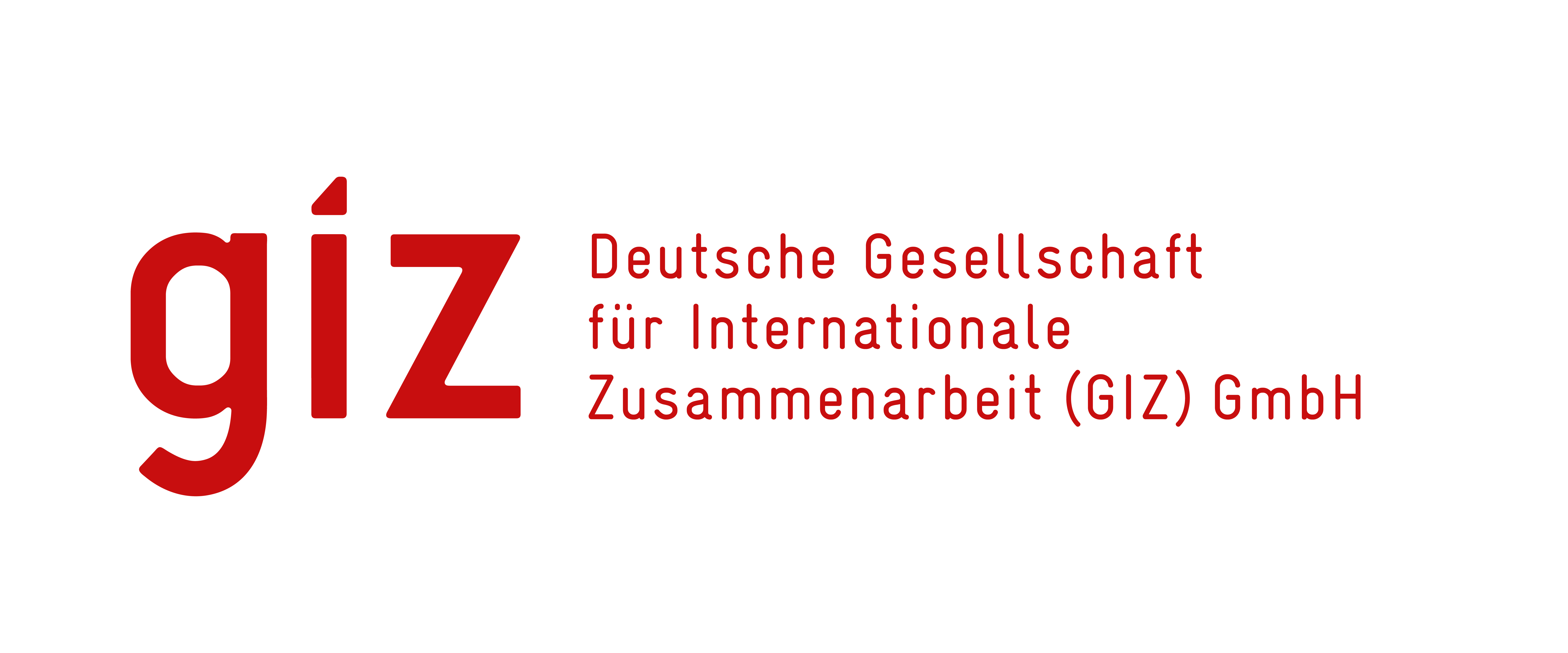
Implementing Solar Irrigation Sustainably
A guidebook for state policy-makers on maximizing the social and environmental benefits from solar pump schemes
In 2019, India launched the PM-KUSUM scheme: a major initiative to promote solar-powered irrigation, thereby boosting farmer well-being and transitioning to clean energy. This guidebook provides concrete recommendations on how state officials can sustainably deploy standalone solar pumps. First, on social outcomes, how can schemes maximize benefits for low-income farmers? Second, on the environment, how can schemes minimize risks of over-withdrawal of groundwater?
-
Using solar pumps in agriculture can help India reach 500 GW of clean energy by 2030, but they must be deployed sustainably to maximize the benefits for farmers and avoid negative environmental impacts.
-
Solar-powered irrigation can help India address agricultural challenges and generate huge social benefits, including reliable, clean electricity for farmers and significantly improved farmer incomes and well-being.
-
Indian States can take 5 steps to install solar pumps sustainably: coordinate among agencies, balance affordability for farmers w/ financing costs, target low-income + marginal farmers, support the right infrastructure, and properly monitor impacts.
Solarizing irrigation in India has huge potential. Cost-effective and reliable irrigation can significantly improve farmer incomes and well-being. Moving away from subsidized grid electricity can relieve financial pressure on utilities. And solar power helps India shift to clean energy, reducing air pollution and greenhouse gas emissions.
At the same time, care must be taken to implement solar irrigation sustainably. There are complicated interconnections between water, energy and food—often called the “water–energy–food nexus” or WEF nexus—where interventions in one area can cause unexpected impacts in another.
This guidebook has been developed in cooperation with the Ministry for New and Renewable Energy (MNRE) and is dedicated to supporting state policy-makers and agencies in India in the sustainable implementation of solar irrigation, considering both social and environmental sustainability. First, on social outcomes, how can schemes maximize benefits for low-income farmers? Second, on the environment, how can schemes minimize risks of over-withdrawal of groundwater?
Based on an initial needs assessment, it considers these objectives over five major themes:
- Coordination: What inter- and intra-departmental coordination mechanisms are needed?
- Affordability and financing: How to make pumps affordable within state financial constraints?
- Targeting: How to make sure the right-sized pumps go to the right beneficiaries and locations?
- Infrastructure: What infrastructure can boost farmer benefits and reduce groundwater risks?
- Monitoring and evaluation (M&E): What aspects of schemes should be monitored and evaluated?
This guidance is focused only on standalone and grid-connected pumps, while a future publication will address feeder solarization. It is intended to directly assist with implementing PM-KUSUM but also to be relevant for any solar irrigation scheme, including future policies once PM-KUSUM is completed. It was developed by a consortium of organizations working in collaboration: the International Institute for Sustainable Development, The Energy and Resources Institute (TERI), the Council on Energy, Environment and Water (CEEW), and the Initiative for Sustainable Energy Policy (ISEP), supported by the Deutsche Gesellschaft für Internationale Zusammenarbeit (GIZ) GmbH. Publication Type
Participating experts
You might also be interested in
Mapping Policy for Solar Irrigation Across the Water-Energy-Food (WEF) Nexus in India
How are India's off-grid solar pump policies affecting the water–energy–food nexus? This paper maps out impacts and the key policies that are driving them.
Implementing Solar Irrigation Sustainably
This guidebook provides recommendations to state policy-makers on how they can implement solar irrigation models, particularly decentralized solar plants for irrigation under the PM-KUSUM scheme, effectively and sustainably.
State of the Sector: Critical energy transition minerals for India
This report presents a comprehensive strategy for securing a reliable supply of critical energy transition materials (CETMs) essential to India's clean energy and low-carbon technology initiatives.
Increased Support Needed to Achieve India's Clean Energy Goals
India is on track to achieve many of its 2030 clean energy goals but needs to step up government support measures to accelerate the deployment of offshore wind, electric vehicles, and green hydrogen, according to a new report.
